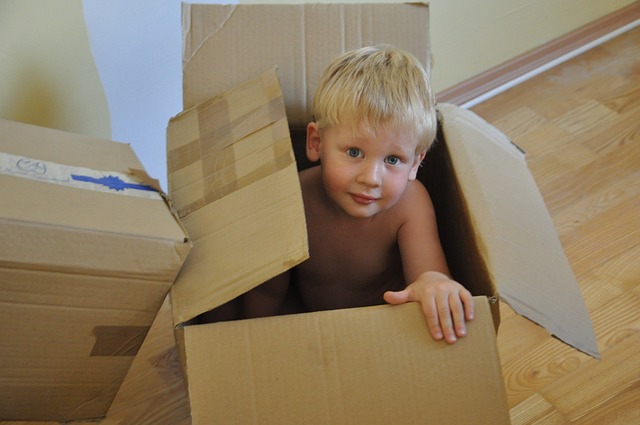Moving with Children: 4 Tips to Help Your Child Adjust

Moving is hard. It’s one of the most stressful things you can do, and it can be challenging to know where to start. As much of this is true for adults, it is especially true for children. For them, they’ll be leaving behind a school and neighborhood they’ve become familiar with, not to mention all their friends. For kids with military parents or parents who change locations for jobs often, this is a reality they will likely have to deal with more than once in their young lives. But don’t let that scare you. Planning and preparation can make your child’s transition to a new location much easier. Here, we’ll give you tips on how to talk to your kids no matter where you go, whether it’s closer to family, a new city for a new job, or a just a new start.
Be positive about the move.
Yes, many things can be nerve-wracking or downright harmful for a child when it comes to moving. But there are also plenty of positives. Explain to your child that they will be able to make new friends. They’ll also get to see new places and have new adventures. It’s best to talk about these things first to put the move in a positive light.
Talk about the negative, too.
Moving is a big deal. Your kids are probably going to be upset about it. Be honest with your children. Let them know you understand their feelings and are there for them. Most importantly, listen to what your kids say about the move. Don’t minimize or dismiss their feelings —they might surprise you with their strength and resilience.

Don’t hide things from your child or children.
Sometimes, when discussing something difficult, we resort to waiting until the last minute to have a difficult conversation. It’s human nature, but it doesn’t do anyone any good. Also, kids are surprisingly perceptive. Even if you don’t tell them upfront, there’s a good chance they’ll know something is up.
Instead, involve them in the talks early on. Even if it isn’t confirmed, let them know that there is a chance that they will be moving. As you learn more about your new home, fill them in. Show them pictures of their new neighborhood, house, and school. This level of involvement will help ease some of the nerves that come with a move and help you build healthy communication with your child that will last for life.
Give them time.
Moving is stressful, and having kids upset about it could make it more difficult. But you have to allow your child or children time to grieve. Yes, grieve.
When moving, many children will feel a sense of loss. It will be a moment that they remember for the rest of their lives. It would be best if you allowed them the time to be upset and work through their emotions about the move.
It’s always difficult to let go of familiar surroundings to move on to a new city, state, country, or neighborhood. But communication is key in this process. If your child understands what they are moving towards and understands that it is an exciting opportunity for all involved, they will be more likely to see it as a positive experience.
This guest post was authored by Tonya Towles

Tonya Towles is Expansion Network Owner at PCS Pro. PCS Pro is comprised of military spouses and veterans who are passionate about helping fellow military families and service members find their next home. Having done it themselves, they are familiar with the entire PCS military process and strive to help their clients navigate the process with as little stress as possible.
*******
Ms. Career Girl strives to provide valuable insights you can use. To see more from our columnists and guest authors, check these out! Or subscribe to our weekly email featuring our latest articles. We’re also present on Medium!

